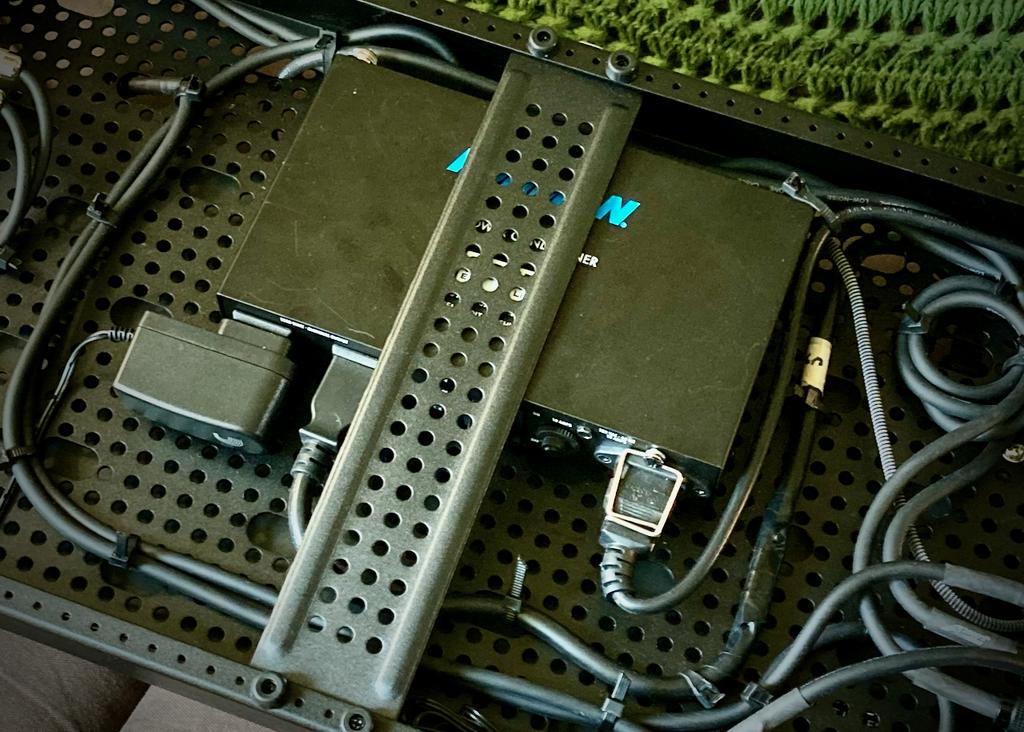If I were ever troubleshooting EMI, first thing to do is check lighting. Any fluorescent bulbs? Swap 'em for LEDs. Any sensitive electronic equipment close to your music room or workstation? Be sure your computer, video and audio gear utilize separate circuit breaker circuits, or are connected to reliable UPS power supplies, or surge protector/line conditoners.
Case in point, my video gear is plugged into one UPS unit, and my computer is connected to a separate UPS. My computer monitors are powered via power strip-switchable wall outlet, my FRFRs and audio peripherals, as well as my printer, are powered via reliable surge protection/line conditioners, and lastly, my FM9 is powered via a Furman AC-215A surge/conditioner unit into a wall outlet. The video gear resides on the opposite side of the room, whereas the computer, printer, and audio gear the same side of the room, into 3 separate wall outlets.
Sometimes you'll find that certain electronics components add to extraneous EMF/RFI (not exactly EMI, but close). I usually don't practice guitar with any video gear at the same time, because of the possibility of RFI. Since my computer monitors, drafting-style LED desk lamps and FM9 are on one circuit, that tends to isolate ambient line noise from these and doesn't affect either UPS or surge protectors.
If the OP owns his home and can afford it, I'd suggest he ask a licensed electrician to visit and evaluate his house wiring system. For perhaps 45 minutes work, the electrician might find if there are wiring issues that can be repaired that will help mitigate EMF/RFI in the affected rooms, or be able to offer simple solutions that the OP might not think of himself. If the owner rents, he might need apartment management's approval or ask management themselves to help solve his line noise issues. Something to consider is what type of guitar do you use, what pickups, etc.
Regards myself, my tendency is to look for the least invasive ways of handling a problem, instead of throwing money at it. Much the same way a doctor treats a patient, the diagnosis typically doesn't require the most expensive treatment. The doctor will typically prescribe something that will treat the issue for the least expense, instead of performing a costly surgery. If the doctor is doing his job correctly, he will also suggest preventive ways to avoid health issues.
Same goes for the electrician. If he can diagnose the problem, he also may be able to offer simple solutions instead of requiring costly repair. A trusted electrician will do this. But be aware of the guy who throws a huge number at you expecting you to agree to a costly repair. Find a trusted tech, just not the guy that your ex-girlfriend used for her recent apartment overhaul.

